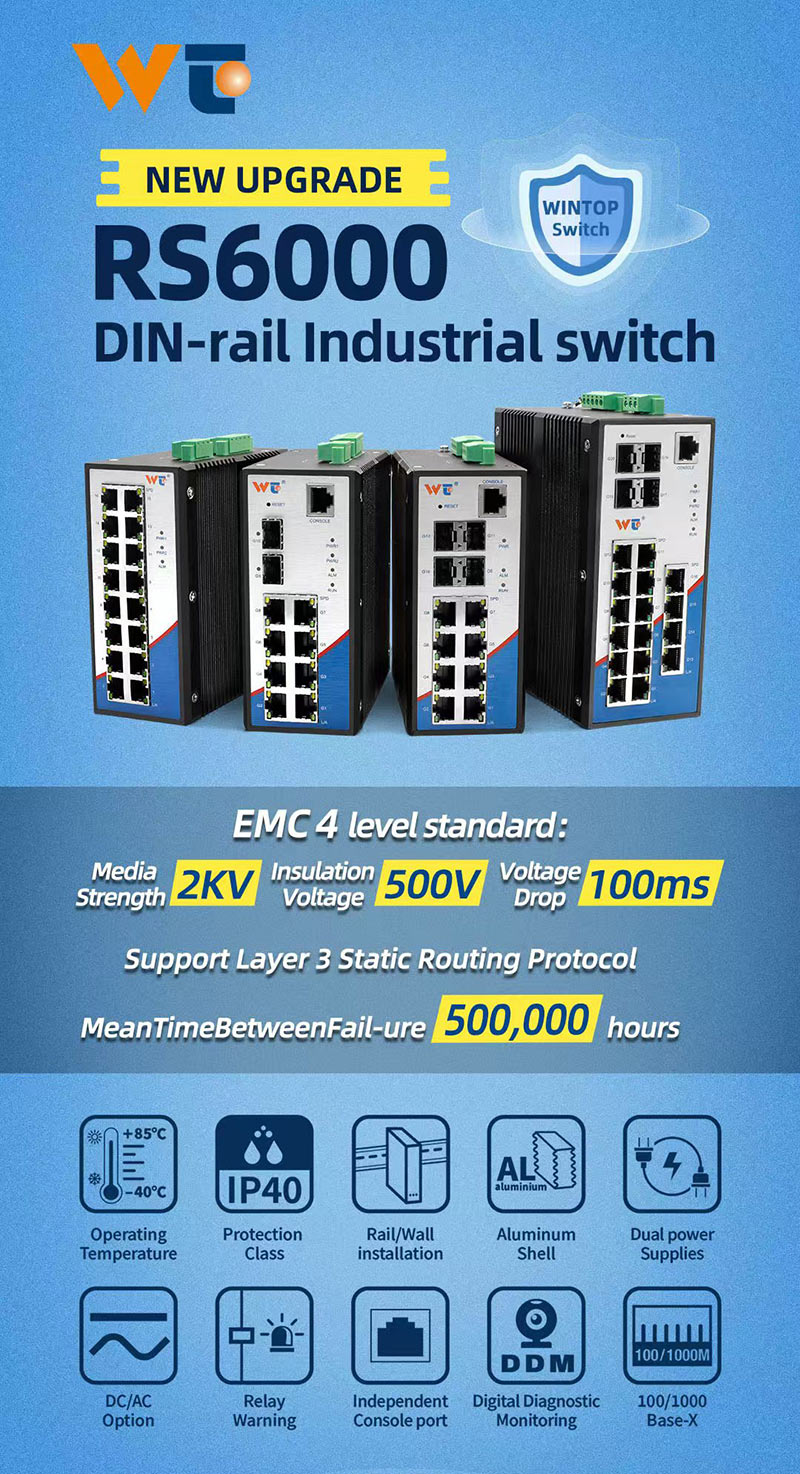Ensuring Accuracy in Microcomputer Monitoring: The Role of Industrial Switches
Introduction
In an era where technology is advancing at an unprecedented pace, the precision of data transmission in microcomputer monitoring systems is more critical than ever. Ensuring accuracy in these systems is not just a technical requirement but a cornerstone for operational dependability and efficiency. Industrial switches play a pivotal role in this landscape, providing high-precision data transmission and unparalleled reliability. This article delves into the significance of industrial switches, their impact on microcomputer monitoring, and real-world case studies that highlight their indispensable value.
The Importance of Accuracy in Microcomputer Monitoring
Microcomputer monitoring systems are integral to various industries, from manufacturing and healthcare to energy and transportation. The accuracy of these systems directly influences the quality and reliability of operations. Inaccurate data can lead to erroneous decisions, operational failures, and significant financial losses. Therefore, it is essential to implement robust mechanisms that ensure data precision and reliability.
The Role of Industrial Switches
Industrial switches are designed to manage and direct data traffic within networks, ensuring that information is transmitted quickly and accurately. Unlike standard commercial switches, industrial switches are built to withstand harsh environments and provide consistent performance under extreme conditions. Their ability to deliver high-precision data transmission makes them crucial in microcomputer monitoring systems where every bit of data counts.
High-Precision Data Transmission
Robust Network Architecture
Industrial switches contribute to a robust network architecture by providing multiple ports for connecting various devices within a microcomputer monitoring system. This connectivity ensures that data flows seamlessly between sensors, controllers, and monitoring devices. The switches' advanced algorithms prioritize critical data, reducing latency and minimizing the risk of data loss or corruption.
Real-Time Data Processing
Real-time data processing is essential in applications where immediate decisions are needed, such as in industrial automation and healthcare monitoring. Industrial switches facilitate real-time data transmission by supporting high-speed Ethernet protocols and implementing Quality of Service (QoS) features that prioritize time-sensitive data packets. This ensures that critical information is always available when needed, enhancing the overall accuracy of the monitoring system.
Reliability in Harsh Environments
Durability and Resilience
Industrial environments often expose equipment to extreme temperatures, vibrations, and electromagnetic interference. Industrial switches are engineered to withstand these conditions, ensuring consistent performance even in the harshest settings. Their rugged construction and advanced error-correction mechanisms minimize the risk of network failures, contributing to the overall reliability of microcomputer monitoring systems.
Case Study: Manufacturing Plant
Consider a manufacturing plant where precision and reliability are paramount. In such a setting, microcomputer monitoring systems track machinery performance, detect anomalies, and optimize production processes. Industrial switches ensure that data from various sensors and controllers is transmitted accurately and promptly, enabling real-time adjustments and preventing costly downtime. The robust nature of these switches ensures that the network remains operational even in the face of environmental challenges, thereby maintaining the plant's productivity and efficiency.
Enhancing Operational Efficiency
Streamlined Data Management
Efficient data management is crucial for the smooth operation of microcomputer monitoring systems. Industrial switches support advanced network management protocols that allow for easy configuration, monitoring, and troubleshooting of network devices. This streamlined data management reduces the complexity of maintaining the network, freeing up resources for other critical tasks and enhancing overall operational efficiency.
Improved Decision-Making
Accurate and reliable data is the foundation of informed decision-making. By ensuring that data is transmitted precisely and without interruption, industrial switches empower operators to make better decisions based on real-time information. This can lead to improved process optimization, enhanced safety, and reduced operational costs.
Conclusion
The accuracy and reliability of microcomputer monitoring systems are vital for the success of various industrial applications. Industrial switches play a crucial role in achieving these goals by providing high-precision data transmission and robust performance in harsh environments. Through real-world examples and detailed analysis, it is evident that investing in quality industrial switches is not just a technical necessity but a strategic decision that can significantly enhance operational efficiency and reliability.
In an ever-evolving technological landscape, staying ahead requires a commitment to precision and dependability. Industrial switches offer the assurance needed to navigate this complex environment, ensuring that microcomputer monitoring systems deliver accurate, real-time data essential for making informed decisions and maintaining operational excellence.
